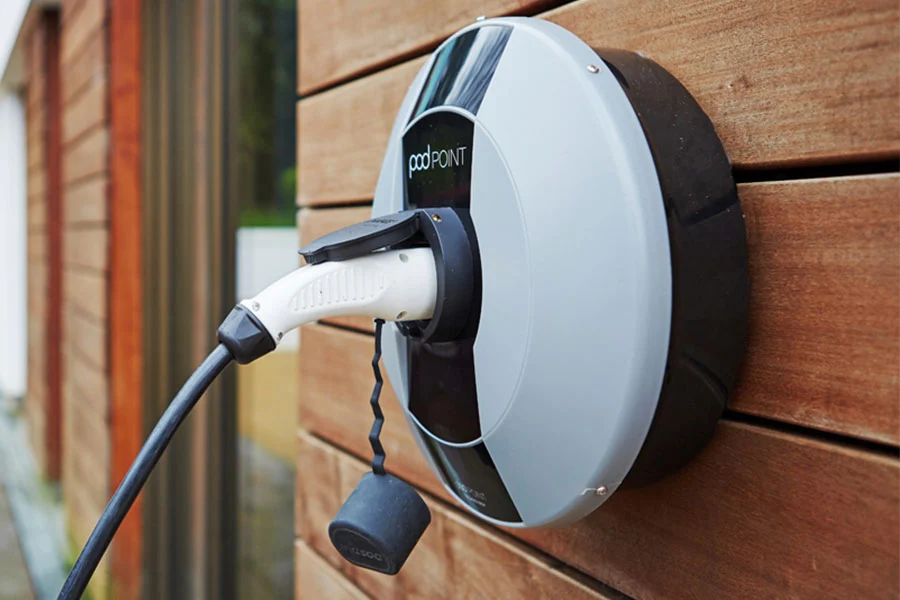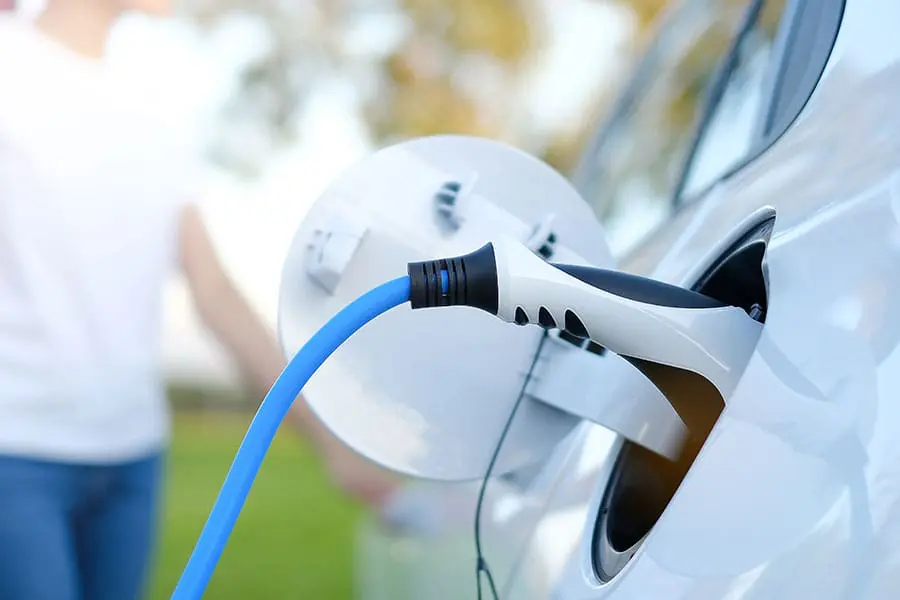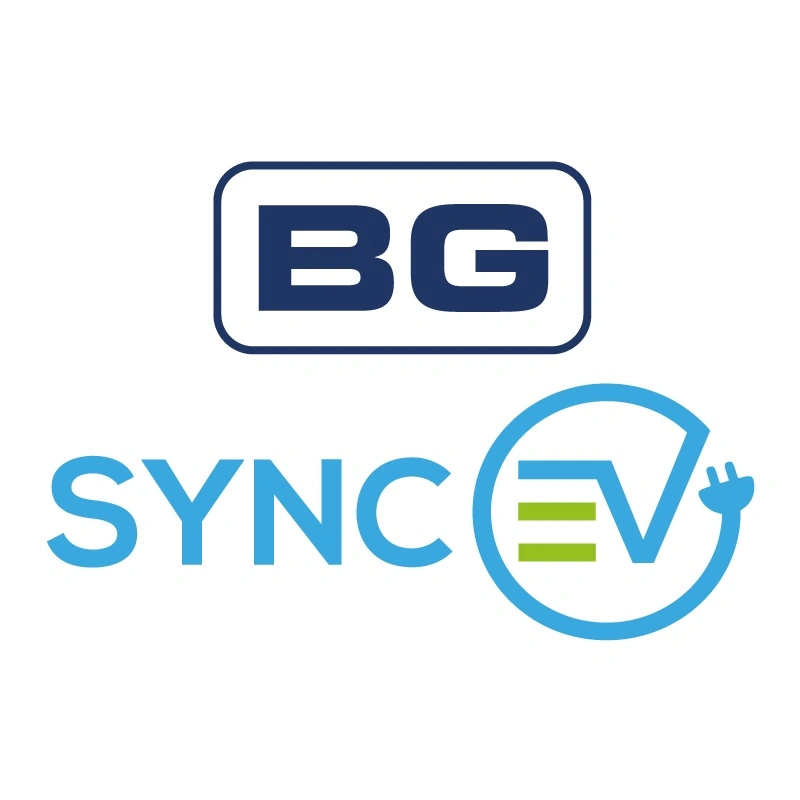EV Car Charging Point Experts in Peterborough, Milton Keynes, Bedfordshire and Cambridgeshire
Fully Approved EV Installers
- Do you need an EV Car charger installed? Safe Electric can help!
- They install charging stations for homes and businesses.
- People trust Safe Electric because:
- Their workers are experienced and qualified.
- They are approved by a government agency (OZEV).
- They can install chargers from many different brands.
- They can help you find ways to save money on the installation.
- They offer professional advice and a smooth installation process.
If you’re interested in getting an EV charger installed in your home or business around Peterborough, then Safe Electric seems to be a good option to consider.

Fill Out Our EV Enquiry Form So We Can Assess Your Installation Needs
Home & Business EV Charging Point Installation
Many more people choose to install EV car chargers in their homes. But workplaces are also taking advantage of the benefits of providing EV chargers.
We’ll support you with both.
Whether for home or work, we’ll advise you as to which charge provider will be best for your needs. Our advisers and engineers are professional, friendly and experienced. They work quickly and efficiently and, in no time, will have you set up with your EV charging points with negligible disruption.
We make the process incredibly simple. All it takes is a quick call and answering a few questions.
Smart Charger Installation
The energy business stands to reap huge benefits from intelligent EV Car charging.
Taking the ‘smart’ approach will be good, not just for users of electric cars but also for owners of charging stations and those who operate charging networks.
An intelligent solution for electric vehicle charging will benefit electric car owners, companies, and EV car charging networks in the following ways –
Easily locate EV charging stations
- Easily locate accessible charging stations with a smartphone app.
- Then book your place while travelling.
- Access real-time data on charging stations’ availability, as well as details of charging power and cost.
Faster charging
The smart device will automatically charge your vehicle with as much energy as it can. Most smart devices will charge up to a limit of 22 kW of power.
Safer Charging
A smart charging device is a lot more secure and worry-free than a standard wall socket. Before beginning to charge, your intelligent device will first check to ensure a proper connection between your car and the device. You’ll be able to monitor and manage every single charging event from a remote location.
Automated billing – worry-free, no-hassle invoicing
Once you have charged your vehicle, you’ll be automatically invoiced for the charge.
You’ll identify yourself as a customer by using the mobile app, RFID tags, or the one-time payment service,
You’ll make huge savings and safeguard the environment by prioritising the times of day when power costs the least. By optimising the times of low energy usage, you also contribute to the overall balance of the grid.
As more people drive electric vehicles (EVs), there will be a greater demand for increased adaptability. Energy providers will start providing financial incentives to drivers of electric vehicles to encourage them to charge with less power.
How long does it take to install a Chargepoint?
When we install EV chargers, we work quickly and efficiently. Our focus is on causing you minimal disruption. As long as your charging point is located near your main supply and you have an internet connection, the installation process rarely takes more than a day for each charger.

Save up to 75% with OLEV's Chargepoint Schemes
If you want to save costs on your EV charger installation, you may be interested in the government schemes provided by OZEV.
If you’re installing EV chargers in a commercial setting, you can make use of the OZEV Workplace ChargePoint Scheme. With this scheme, you can save up to £350 on the purchase and installation of a single-socket charger. You can use it for as many as 20 charging points. The On-Street Residential Charge Point Scheme is another scheme that local authorities can use.
To take advantage of any of these schemes, you must have your charger installed by an OZEV-approved installer, such as Safe Electric.
If your installation is commercial, we can also help you to apply for suitable funding. Unlock up to £14,000 OZEV funding towards your installation.
FAQ's
The answer is No
Don’t try to install an EV charger yourself unless you’re an electrician with expertise doing so. Always work with a certified and competent installation. Although it can cost more up front, doing this is necessary to ensure that your charger is installed professionally, safely, and in accordance with all laws. In addition, certain EV charging stations’ warranties will expire if they are not installed by a qualified installer. Don’t take that chance, please.
This is totally subject to various criteria such as: –
For single-phase installations in a normal domestic situation.
Does your installation have the spare capacity to install a charger you may have to upgrade the supply fuse at your expense you need to speak to your local DNO to get this cost at the same time always ask them to install a double pole isolator after the meter, they may tell you that this is done by the metering company only, again separate cost?
Is your fuse board Surge protected yes/no if yes great, if no, is it possible to fit a surge device in the board this can cost anywhere up to hundred £150 for a single phase board depending on the make of the fuse board, that’s if you can even fit one depends on the age of the board, if you can’t you may need to replace the entire fuse board, which can cost depending on how many fuses you’ve got upwards of thousand pounds to change under the current regulations including labour.
This will also include a full inspection & test of your existing electrical installation this may find issues that need to be rectified before an EV charger can even be installed again additional costs or if possible, fit an additional fuse board just for the EV charger this all involves additional costs?
You may need to get your meter company to come and install a double pole isolator before this work is carried out this is another additional cost anywhere between £90 -110 depending on where you are (check with your metre company) without this you may not be able to fit an additional board again additional cost.
Depending on your choice of charger also depends on the cost a simple bog-standard charger which is hardwired into your system and will not interface with Solar, or battery storage can cost between £350-£450 if not more depending on the make just for this charger alone this does not include labour, I’ve even seen some at £250 but I would never fit them in the UK.
Don’t be fooled by low price charger costs on the Internet, these are normally based on a simple EV charger that cannot interface with solar or battery and is within approximately 3 m of your fuse board assuming (normally directly behind your fuse board on the external wall) also that you have the ability to fit the correct A type RCBO and often do not have an O-pen safety device built-in, this can cost you an additional £250-500 if bought separately depending on the make you buy and the level of safety that you need.
Most EV chargers that can interface with solar and battery and that also have, an O-pen safety device built-in together with load balancing and monitoring can cost anywhere between £650 and £1200 with a tethered 10 m lead just to buy this does not include fitting costs.
Once you start going beyond 5 m up to 25 – 30 m away from your fuse board, the costs go up exponentially and even start paying anywhere between two and £3,000 or more, plus VAT to have these installed professionally with the full certification inspection and testing upon completion.
For 3-phase installations, normally found in commercial and industrial
All the items mentioned above need to be considered based on a three-phase installation these costs can run from 5k for an A/C charger to 250k for a Fast DC charge depending on how far away they are from your supply if your supply has the spare capacity to install one and so many other issues.
3-phase charges depending on their kilowatt output and whether you have one or two output points can cost anywhere from 2.5 K-4K just for the charger alone, DC chargers are considerably more expensive, this will not include any trenching work concrete, groundwork, ducting work, and all other associated costs of getting the cable from your supply to the charger point.
As you can see many of the prices stated on the Internet do not consider any of the additional work that may be involved, do not be fooled by these loss leader prices a truly competent engineer fully trained in EV installation will be able to properly assess your requirements including getting approval to install an EV charger at your property without this the work is not allowed to go ahead, insist on proof that this work has been done by your local network operator to the approved EV charger installer make sure you get a copy of it.
Bear in mind a simple 7 kW charger will be running for 6 to 8 hours on cheap rate electricity you can set it up to do this
This means that the joints where the cables are connected can get very warm over a long period of time and with constant use these need to be checked and tightened failure to maintain your EV charger and its connection points are asking in the long run for a fire to occur maintenance is exceptionally important whether it’s a domestic installation or a commercial/industrial installation these units need to be maintained.
Badly installed EV chargers can also be a risk to your life, and anybody else that may touch your car and earth without the correct safety devices installed always ensure that you have chosen a competent EV charger installer and get them to prove that they have been trained and approved by the manufacturer to install their units.
If the price is too good to be true it normally is, competent installers care about your safety Cowboys just don’t care, I hope the above information assist you in forming your own personal opinion armed with the information above.
You must have written permission and approval from your local DNO for installation
Most people think that if you own the land on which the charging point is installed, you have the legal right to do so without having to first obtain permission. “This is not the case” whether it is Domestic or Commercial you need the permission of the DNO to put in an EV charger.
It is important to note that the addition of a new circuit for the purpose of charging an electric vehicle would be considered “notifiable.” This indicates that the record of it must be kept by your local authorities. When the installer registers an Electrical Installation Certificate (EIC) for the work with the NICEIC, this will be taken care of on your behalf.
There is a wide selection of chargers available, and you may choose wall boxes that are either tethered or untethered. While unattached boxes have a tendency to have a tidier appearance, tethered ones are more popular because of their ease (they let you unwind the cord). Untethered chargers provide you the option to upgrade to a longer cord in the future by letting you swap out the basic wire with a longer one.
Universal (untethered)
Although universal chargers are compatible with any electric vehicle, they do not provide a charging wire of their own and instead rely on the user to supply one. While its adaptability is its strongest suit, the fact that you’ll have to provide and transport the cable everywhere you go is a major negative.
Tethered
Tethered chargers already have a charging wire attached to them, so all you have to do is park your vehicle and plug it in. Convenience is the primary advantage of this type of connection, while the primary disadvantages include a cable that is of a limited length and the possibility that you will want an adaptor in the event that you decide to convert to a car that has a different type of socket.
To determine the amount of energy that can be supplied by a charger in one hour is measured in kilowatt-hours (kWh), which is the unit of measurement used to supply charging speeds. Kilowatt-hours are used to measure the capacity of electric vehicle batteries. By dividing the capacity of the battery by the speed of the charger, it is simple to determine how soon a charger will replenish the battery in your electric vehicle (EV).
There are typically three different charging speeds available for electric vehicle chargers.
Slow Charging Points
Slow charging stations are frequently the least expensive to use and are ideal for long-term parking situations, including overnight or during work hours.
Alternating current, or AC, is used by slow chargers, which typically charge at speeds of either 3.7 kWH or 7.4 kWh (while some go up to 22kWh, these are rare in the UK). Chargers like this are often located in private homes, commercial establishments, and some public charging sites.
Connector types 1 and 2 are able to accommodate a slow charging rate.
Fast Charging Points
Fast charging stations are perfect for parking cars for a few hours.
Direct current (DC) fast chargers typically charge at a rate of 50 kWh. These chargers are often found in public spaces like highway service stops and businesses.
Fast charging is supported by Type 2, CHAdeMO, and Combined Charging System (CCS) plugs.
Rapid Charging Points
Rapid charging stations enable for quicker and more efficient charging of your electric car. Typically rated from 43kW and found in highway services, supermarkets and larger petrol stations. It takes around 30-60 minutes to completely charge but is only compatible with certain EVs that have a quick charging capability.
Depending on the power rating of the charge station, charging your car might take anywhere from 30 minutes to 12 hours or longer. A battery may be fully charged in 30 minutes using a rapid charging station with three-phase current, although they are quite uncommon. The majority of home chargers need eight hours to fully charge a dead battery.
Using the three-pin plug that comes with your electric car when you purchase it will result in the longest possible charging period. Plugging your charging cable into your electric supply this way strains your system and is less convenient than using a designated charging station, thus it is only advised for infrequent usage.
The make and model of your automobile will determine the charging rates and corresponding travel lengths, however the following is a broad overview of the various EV charging levels:
At Home
- Slow (3.6kW charger): Can go up to 15 miles in an hour
- Standard (7kW charger): The most popular form of charger, providing up to 30 miles of range on a single charge.
- Quick (22kW charger) This sort of charger is unique since it needs a separate phase of electricity and can go up to 90 miles on a single charge.
Away from Home
- Rapid (50kW charger): 30-minute charge provides up to 90 miles of range
- Up to 200 miles on a 30-minute charge with an ultra (150kW charger)
Take into consideration that not all electric vehicles are suitable for charging at every level. Check the manual that came with your electric car to learn the maximum charging speed it supports.
An electric vehicle (EV) may be charged similarly to a smartphone. A cable is required to connect your EV to the charging station you wish to use and carry the charge between the two. Both your EV and the charging station have charging sockets.
Two of the most common types of sockets are type 1 and type 2, although there are other varieties as well. Type 2 sockets are the latest European standard for automakers, while type 1 sockets are an older form that are mostly used in Asian automobiles. The majority of charging stations will also feature a type 2 socket, thus to connect your vehicle to the charger, you must have a cable with the appropriate type of connections on each end.
Chargers for electric vehicles (EVs) can be broken down into two distinct categories: “smart” and “dumb” chargers.
Information is gathered and payments are processed at smart EV charging stations. These chargers, like current gas pumps, typically provide detailed information about the amount of power used and the associated cost.
A dumb charger is a simple type that consists of a non-networked box with a plug, or you can simply think of an electrical outlet as a “dumb charger.” They have no way of communicating with the cloud or being remotely controlled.
One-time use electric vehicle chargers, or “dumb chargers,” are typically installed in homes so that the car’s owner may charge their own personal EV.
These were the norm at the beginning of the EV revolution however they are no longer acceptable under the current regulations.
Simply inserting the charger into the vehicle’s outlet will begin the charging process. Even if the car isn’t programmed to begin charging immediately, plugging in the charger will start the process. A digital solution is unnecessary for the beginning of such a charge.
“Dumb chargers” function just as well as smart ones and cost a lot less money. The drawback of these fees is that without a means to track consumption, buildings may find it challenging to recover electricity costs and properly bill consumers, but due to changes in the current regulations, competent engineers can no longer fit them.
A dumb charger is a drain on the power grid since it does not communicate with the power grid in any way. A smart system, for instance, would restrict your charging to avoid both high rates and the little supply of electricity if you plugged in your EV during peak usage hours, whereas a dumb charger would go all out at using energy. Since the dumb charger is unable of receiving updates that would allow it to take advantage of new services or solutions, it is now obsolete and competent engineers can not fit them and comply with the current regulations.
All chargers now have to be smart in order to control the demand on our already overtaxed network and ageing infrastructure.




















